SAPIENZA MARIE SKLODOWSKA-CURIE FELLOWS 2023
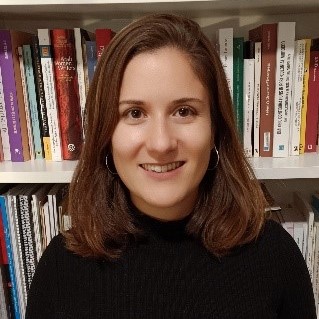 ANA GONZALEZ NAVARRO - RESOMFEM
ANA GONZALEZ NAVARRO - RESOMFEM
The RESOMFEM project addresses the writings of women in Morocco, published between the 1970s and the 2000s, about their experiences during the period known as the Years of Lead (c. 1965-1999). From a feminist perspective, the project aims to analyse these writings (in different languages and genres) as a contribution to the inclusion of women's participation in the social and political issues of Moroccan history.
Supervisor: Ada Barbaro
Department: Institute of Oriental Studies
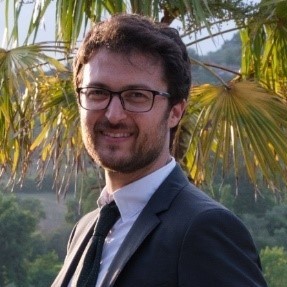 PAOLO CIMADOMO - EARTH
PAOLO CIMADOMO - EARTH
The main objective of the EARTH (Earthquakes And community Resilience Through Historical analysis) project is to analyse the impact of earthquakes on the societies and economies of the Eastern Mediterranean during the Late Antiquity (4th-6th centuries). In particular, the project will focus on the area of the southern Levant, a region that has experienced numerous seismic events and is rich in archaeological, epigraphic and literary documentation, elements that make it an ideal case study. The research will include a review of all archaeological reports from the Palestinian Territories and an analysis of historical aerial photographs and satellite imagery to identify anomalies in the area. The project will analyse both urban and rural areas to provide a complete picture of the area. Finally, an open-access 3D WebGIS will be created, which will be a useful tool for anyone wishing to analyse the archaeological reality of the area.
Supervisor: Lorenzo Nigro
Department: Institute of Oriental Studies
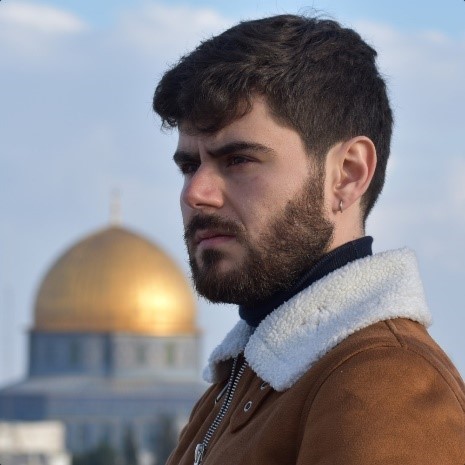 DANIELE MINISINI - UnderText
DANIELE MINISINI - UnderText
Carefully transmitted by some and deliberately erased by others, at times remembered through the centuries, at others completely forgotten and vanished into the unseen, the Book of Jubilees is a second-century BCE apocryphal Jewish text that retells the legendary foundational stories of the Books of Genesis and Exodus with the addition of otherwise unknown details. "UnderText: UNDERstanding the TEXTual development and the literary fortune of the Book of Jubilees through ages, languages and across geographic regions" will shed new light on the development and fortune of such an important text focusing on the relationship between the Hebrew original text (whose fragments have been discovered at Qumran), a Latin translation preserved in the undertext of a fifth-century palimpsest stored at the Ambrosian Library in Milan and the Ge'ez (the classical language of Ethiopia and Eritrea) translation of the Book of Jubilees. Through meticulous analysis and cross-linguistic comparisons, the project promises to shed new light on the book’s textual evolution and cultural impact, reviving a lost chapter of European literary heritage.
Supervisor: Alessandro Bausi
Department: History, Anthropology, Religion, Arts and Performing Arts
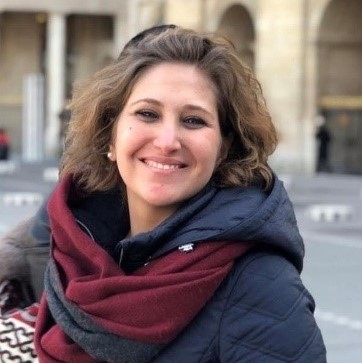 ANGELA DE MARIA - TransIslam
ANGELA DE MARIA - TransIslam
The TransIslam project aims to contribute to the fight against the old Islamophobic stereotypes that are still widespread today by promoting initiatives aimed at (re)educating society at large through the dissemination of objective and impartial knowledge about Islam. A corpus of Ottoman manuscripts on religious subjects, translated into French by dragomanes in Istanbul in the first half of the 18th century, constitutes the main research tool for examining whether and to what extent the texts, once transmitted to Europe, contributed to the development of such a perception of Islam by defining religious relations between Christians and Muslims.
Supervisor: Alessandro Saggioro
Department: History, Anthropology, Religion, Arts and Performing Arts
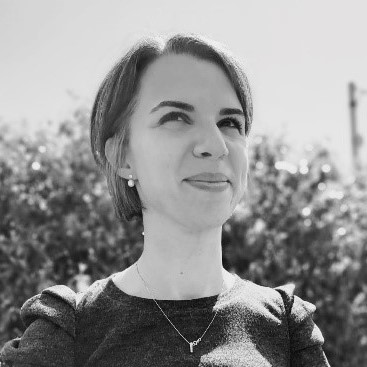 SILVIA OMENETTO - GAP
SILVIA OMENETTO - GAP
The project is based on the hypothesis that 'iconic' and hybrid religious architectures have an underestimated impact on the (in)visibility of believer/user groups and thus on the construction of super-diverse and inclusive urban spaces. GAP will study the emblematic case of gurdwaras located between Italy and Singapore, exploring the opinions of Sikh users and non-users on the materiality of these religious buildings through a transdisciplinary approach and methodology that integrates qualitative research techniques, participatory activities and digital humanities.
Supervisor: Alessandro Saggioro
Department: History, Anthropology, Religion, Arts and Performing Arts
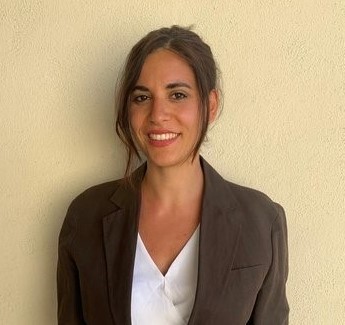 MARTINA RUSSO - POWO
MARTINA RUSSO - POWO
POWO (Powerful Words: Imperial Speeches of the Julio-Claudian Dynasty) will collect, classify and analyse the judgments, letters and speeches attributed to the Julio-Claudian emperors, using both rare official documents and numerous historiographical and literary sources. In this way, for the first time, a complete picture of the words of Rome's first princes will be obtained. Through an interdisciplinary approach combining philology, literature, rhetoric and pragmatics of communication, POWO aims to study the use of words as an instrument of political propaganda, manipulated to this end both by the emperor and by the sources, which seek to convey their judgement by constructing the character of the prince according to the tyrannical model offered by the tragedies.
Supervisor: Francesca Romana Berno
Department: Ancient World Studies
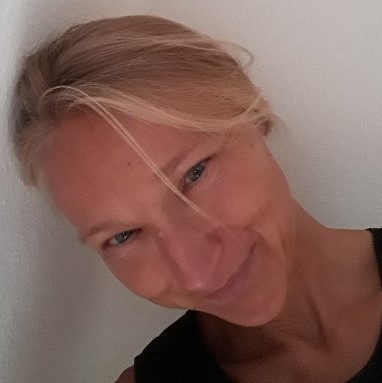 HENRIETTE ZEIDLER - INCH
HENRIETTE ZEIDLER - INCH
The complementary feeding period is critical for children's development. While there is ample evidence on the impact of feeding on infants' physical health, little is known about the behavioural and cognitive aspects involved - especially in countries of the global south. The INCH project aims to fill this gap by developing tools to measure feeding practices in rural and urban areas of Africa and to study their impact on children's social, physical and cognitive development.
Supervisor: Francesca Bellagamba
Department: Dynamic and Clinical Psychology
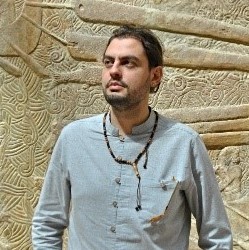 GIOELE ZISA - PlANET
GIOELE ZISA - PlANET
The PlANET project aims to rethink the religious, ideological, scientific, gender and economic roles of ten plant species in Mesopotamia during the Neo-Assyrian and Neo-Babylonian periods (10th-6th centuries BC). It also aims to identify possible cases of over-exploitation of plant resources by humans. The project is the first large-scale study to deepen our knowledge of human-plant relations in Mesopotamia through a non-anthropocentric transdisciplinary research model, incorporating the methods of historical-philological, anthropological and environmental humanities research, archaeobotanical literature and the tools of digital humanities.
Supervisor: Lorenzo Verderame
Department: History, Anthropology, Religion, Arts and Performing Arts
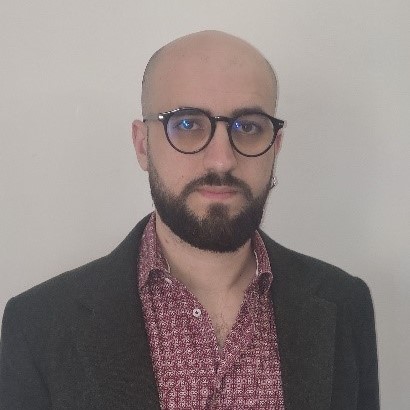 FABIO MANGRAVITI - FISM
FABIO MANGRAVITI - FISM
The IMF project investigates, from an interdisciplinary perspective, the functions expressed by 'satire' (vyangya) and 'humour' (hasya) in the Hindi language in the Indian socio-cultural reality. The use of these modes of expression will be analysed both in the literary and performance spheres, as well as in the context of new media. In this theoretical vein, we will examine in particular the dynamics of agency expressed through satire and humour as enacted by 'subaltern' and marginalised subjects and communities. The aim of the research, which will focus on urban and peri-urban areas of metropolitan and second-tier cities in North India, is to describe and theorise contemporary Hindi satire as a specific instrument of resilience, activism and empowerment of subaltern subjects and communities.
Supervisor: Giorgio Milanetti
Department: Institute of Oriental Studies
 PAULINE OTZENBERGER - TrAdE-Pic
PAULINE OTZENBERGER - TrAdE-Pic
This project examines the vernacular tradition of Enea Silvio Piccolomini's Historia de Duobus Amantibus. This 15th and 16th-century erotic work is an example of literary and commercial success: it was translated into many languages and circulated widely throughout Europe. Research will focus primarily on the French and Italian prosimeters, developing critical editions and studying them in the light of cultural and book history. It will also examine the impact of new readers on translation and rewriting processes, and explore the interaction between literary and social change.
Supervisor: Gioia Paradisi
Department: European, American and Intercultural Studies
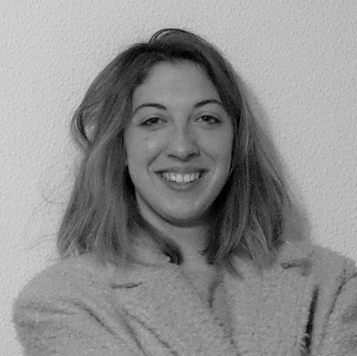 SARA DAL CENGIO - COFAM
SARA DAL CENGIO - COFAM
The project focuses on the interaction between active matter physics, which studies the collective motion of particles capable of extracting energy from the environment, and population dynamics. Through an interdisciplinary approach, the study aims to understand how motility influences the spatial evolution of a microbial population and to characterise its ecological-evolutionary implications.
Supervisor: Chiara Cammarota
Department: Physics
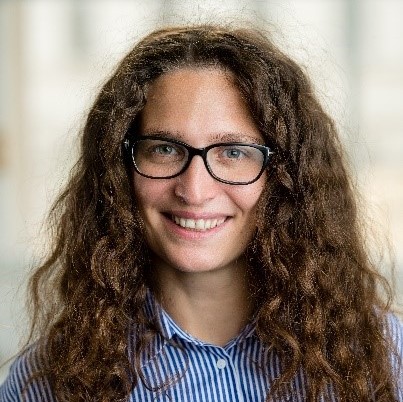 MARTA MUSSO - DITNO
MARTA MUSSO - DITNO
The project 'DITNO (Data is the new oil): a political history of the European IT industry' analyses the history of European IT from the post-World War II period to the present day, making an explicit comparison with the development of the European oil industry, the most successful case of the development of a strong and globally competitive European industry, despite the initial advantage of the United States. By analysing the reasons for the failure of the IT sector, the project will provide a better understanding of the reasons for the decline in European productivity and what role the European Union (EU) can play in encouraging the development of national (and supranational) IT companies that can compete with the power of US companies. In addition, the project will approach the problem of the data economy from a historical perspective, analysing access to data as a commodity, in parallel with the problem of access to oil that dominated the geopolitical economy of the 20th century, and reviewing the literature on the history of oil in relation to access to data. This will fill a gap in the current literature on the history of the European IT industry, which has focused almost exclusively on hardware and software, to place the problem of data production, analysis and management at the centre of the history of European IT development.
Supervisor: Giovanni Paoloni
Department: Literature and Modern Cultures
Grant Office International Individual Programmes
Head of Unit
Giuditta Carabella
Staff
Belinda Caparro
+39 06 4969 0428
Rosa Di Stefano
+39 06 4991 0719
Elisa Gigliarelli
+39 06 4991 0359
Main Campus
Palazzina Tumminelli
2nd Floor - Room 211
